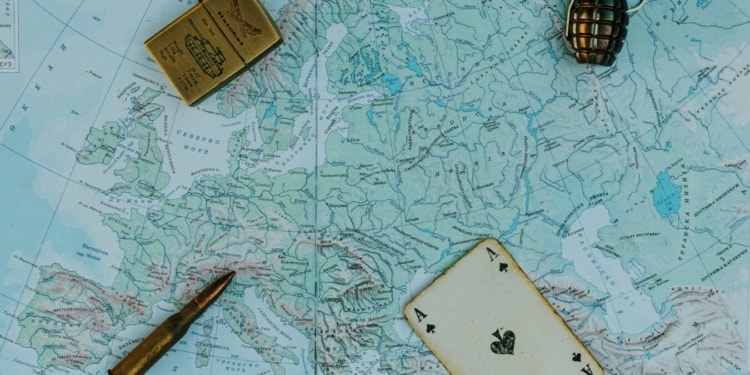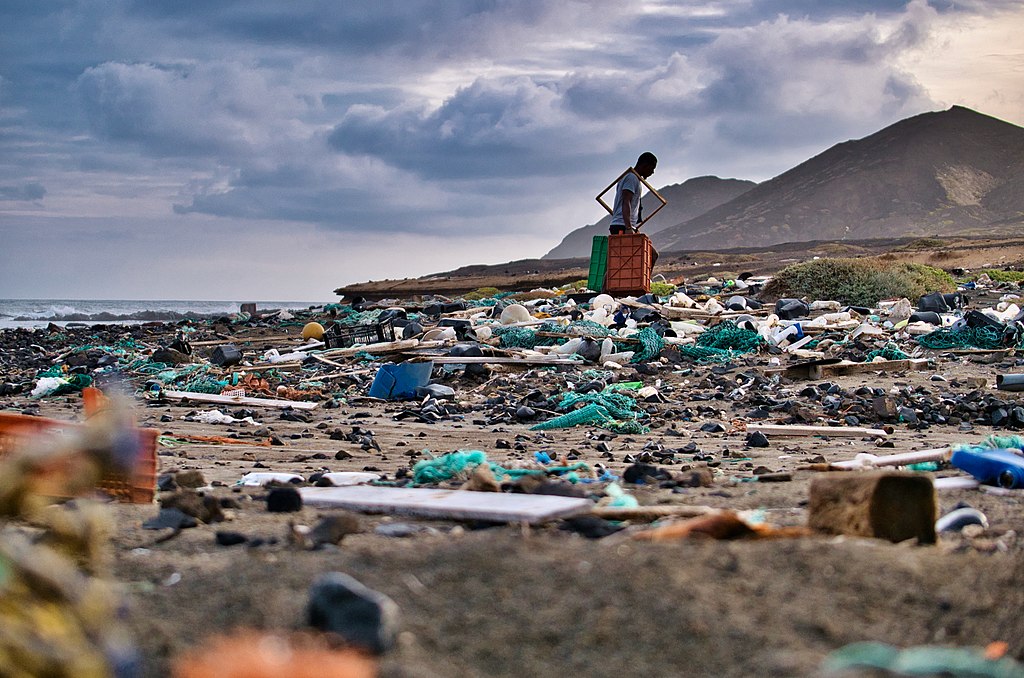The war, according to most observers, is headed for a long drawn-out stalemate, but that doesn’t mean Russia is winning, far from it. As Ukraine’s heroic resistance has amply demonstrated, the full takeover of Ukraine by Russia is off the table, it won’t happen.
All media attention is (of course) on Berdyansk and on the most recent tragedy in Dnipro..
But let’s never forget that a small group of heroes are still keeping a big chunk of 🇷🇺 (so called) elite-soldiers busy in a destroyed town we call Bakhmut.In short: #BakhmutHolds. pic.twitter.com/So0jrblwQ0
— @hkn (@hkn_m4) June 3, 2023
Putin wants total capitulation, but he clearly will never get it. That is the single one thing that cannot happen, Ukrainians will fight on, backed up by Western might – and that’s it. Full stop.
Now consider for a moment the most favorable scenario for Russia: Imagine that somehow Russia manages to hold on to the territories it currently occupies – a big “if” that will depend on how Ukraine’s spring counteroffensive actually plays out – and further imagine that Putin’s demands for total capitulation are shelved so that some sort of an armistice is agreed, whereby Russia annexes Crimea and the Donbas. Even this partial victory – and one that no Ukrainian, for now, is willing to consider or accept – would still be a resounding defeat for Russia.
Why? There are several reasons why there is no way Russia can win this war, either totally (i.e. erasing Ukraine from the map, as Putin wants) or partially (keeping the Donbas and Crimea).
The first and most fundamental reason why is that any territory Russia acquires will have been thoroughly devastated by war and in need of total reconstruction – something Russia, an economic weakling, is in no position to do.
Take the Donbas: This region used to be one of the main production areas for Ukraine’s coal mining and manufacturing, and was, through the port city of Mariupol, a florid center of international trade.
No more.
Mariupol has been flattened out of existence and all the manufacturing areas in the Donbas have gone up in smoke. Crimea which used to be an attractive international tourist destination has long dropped out of the map and was vegetating in poverty even before the war started.
So, if and when peace should return, and supposing Russia has somehow kept control of the Donbas, it will be faced with a humongous task to build back up the whole area: What it has conquered at such a high price – in terms of both enormous human and physical resource losses – is a no man’s land, a smoking desert covered with debris and full of buried mines ready to explode.
Russia has lost the economic war: It is slated to become a weak Cuba-like economy
What resources can Russia find for the task? Russia is a petro-state with practically no manufacturing capacity of its own, and it has already lost, because of the war, its most lucrative markets, those next door, i.e. Western Europe.
No Westerner will invest again in Russia, not after this war is over – not ever. As to the gas and oil markets in Europe that used to be Russia’s primary source of income, they will never again open up for Russia. By now, Europe has found alternative sources for its energy needs and it has learned its lesson: Never again will it rely on Russia.
Russia will necessarily have to look for the resources it needs to rebuild elsewhere.
China? India? The BRICS (with Algeria set to join)? Of course, something will likely trickle its way, but very little. None of the BRICS have the economic clout of the West, not even China which, in addition, has no desire to jeopardize its lucrative markets in America and Europe.
For now, Russia appears to have made some progress with non-aligned countries in the Global South, especially the outliers like Iran and Syria. But how much concrete help can Russia expect from such countries when the time comes and it has to rebuild both the territories (it might have) conquered off Ukraine and its own economy? Obviously none.
By contrast, full support from the West and its immense resources is what Ukraine can count on for its rebuilding. Including for rebuilding the Donbas. It is certainly not in the interest of Donbas residents to hope for Russian control, they will be left struggling to rebuild, with no help coming from anyone.
Also, let’s not forget that Russia was never a large economic power to begin with, even before the war: More or less the size of Italy (this was the case already a decade ago). What was always “big” about Russia was its supposed military might, essentially built on two pillars: the large army it could potentially field (based on a population of 143 million) and its nuclear armament.
As we have all seen with the recent endless battles around Bakhmut that went on month after month, the effectiveness of the Russian military is now left wide open to question. The illegal Wagner mercenaries have shown, time and again, that the Russian forces are woefully mismanaged and inefficient:
As to Russia’s economic might, as noted above, it was never large – just a medium size country – but now it’s even smaller. Don’t believe Russian claims that it has only lost a very small percentage of GDP – official Russian figures originally indicated a 2.1% loss in 2022, then produced a revision, claiming a 1.2% growth in 2023 after a contraction of only 0.8% in 2022 – though the longer-term outlook is “sluggish”.
Don’t believe such numbers, even if (inexplicably) UN organizations, the World Bank and the IMF, have accepted these figures without verification – and to be sure, such numbers are much less than the 29.1 % of GDP loss reported for Ukraine.
More credible estimates show that by early 2023, Russia’s real GDP is likely to be 7-10% below what it would have been had sanctions not been applied following the invasion of Ukraine. Yet, as argued by Professor Jeffrey Sonnenfeld from Yale School of Management, even that lackluster GDP performance is an obvious impossibility in the light of the massive withdrawal of all major Western corporations from Russia, not to mention the cost of the war itself:
This interview is worth taking the time to watch. And we shouldn’t be surprised: Lies and state propaganda were always a Russian specialty since Soviet times and Putin is the true heir of Stalin.
With its most lucrative markets shut down and no prospects of direct foreign investment large enough to jumpstart the rebuilding of its economy in the future, once the war is over, Russia is headed in one direction only: down. Within a few years, expect its economy to be like Cuba’s, with people struggling to repair their Western-sourced vehicles and equipment as none of them can be replaced.
Russia has lost the diplomatic war: Ukraine’s candidacy to NATO is back on the table
NATO expansion was always seen by Putin as a threat and one of the alleged reasons for his decision to invade Ukraine. But the result was the opposite of what he sought: Now NATO has strengthened, with two new members – Finland and Sweden, although the latter is still being held up by Turkey.
And this week, Ukraine’s candidacy for NATO membership has come up again in the news: in Norway, Ukraine’s application was once again considered as foreign affairs ministers of NATO member countries discussed whether some form of long-term guarantees – short of full membership – could be provided to Ukraine.
Meanwhile, in Moldova President Zelensky once again declared that his country was “ready to join NATO” and waiting for approval.
Ukraine has been waiting to enter NATO since 2008 when it first placed its candidacy. Thanks to Putin’s invasion, it now appears to be close to obtaining it at last. The two remaining hurdles within NATO are the autocratic, populist leaders of Hungary and Turkey. If it were not for Orban and Erdogan and their unhealthy courting of Putin, Ukraine would already be part of NATO.
But for how long does it make sense for them to support Putin, an obvious loser? Both Hungary and Turkey are like China: They cannot go all the way and jeopardize their external markets and plunge their countries into recession, just to make Putin happy.
Looking at what Putin has obtained with his war, the losses he has caused with that “special operation” are simply staggering: Russia, a mighty country that once upon a time was looked at as one of the three major geopolitical forces in the world – the other two being the USA and China – is now reduced to a second-rank or even third rank, Cuba-like state.
Good-bye Russia.
Editor’s Note: The opinions expressed here by Impakter.com columnists are their own, not those of Impakter.com — In the Featured Photo: composite: Ukraine – European Union – war – politics, image by Drazen Nesic on Pixnio









